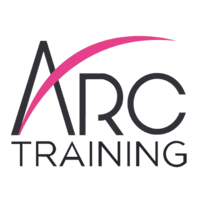
This role has a moderate level of AI exposure. AI can enhance efficiency for some tasks, but this job still relies on human skills and decision-making.
Explore all careersA Paper Mill Worker handles raw materials, operates machinery, and ensures safety while producing, cutting, and packaging paper, requiring teamwork and physical fitness.
Get qualified to work as a Paper Mill Worker with a course recognised across Australia. Speak to a training provider to learn more.







In Australia, a full time Paper Mill Worker generally earns $1,290 per week ($67,080 annual salary) before tax. This is a median figure for full-time employees and should be considered a guide only. As you gain more experience you can expect a potentially higher salary than people who are new to the industry.
 Courses.com.au Team
Courses.com.au Team
This industry has seen a decrease in employment numbers in recent years. There are currently 560 people employed as a Paper Mill Worker in Australia, compared to 780 five years ago. Paper Mill Workers may find work in regions of Australia where paper mill operations are located.
Source: Australian Government Labour Market Insights
 Courses.com.au Team
Courses.com.au Team
If you’re planning a career as a Paper Mill Worker, consider enrolling in a Certificate III in Pulping Operations. This course will develop your skills in areas such as chemical recovery operations, primary resource operations, steam generation, waste paper operations and stock preparation.
 Courses.com.au Team
Courses.com.au Team
Browse occupations related to Paper Mill Worker



If you're looking to start a rewarding career as a Paper Mill Worker, Bathurst offers an array of excellent training options designed to equip you with the essential skills and knowledge needed in this field. By enrolling in Paper Mill Worker courses in Bathurst, you'll gain insights into the manufacturing processes that underpin the paper production industry. These courses are ideally suited for those who are keen to contribute to a vital sector within the local economy.
The courses available in Bathurst are delivered by reputable training providers including ARC Training. These Registered Training Organisations (RTOs) are recognised for their commitment to high-quality education and training, ensuring that you receive up-to-date knowledge and practical experience necessary for success in the workplace. With a focus on both theory and hands-on training, these courses will prepare you for a dynamic career in manufacturing.